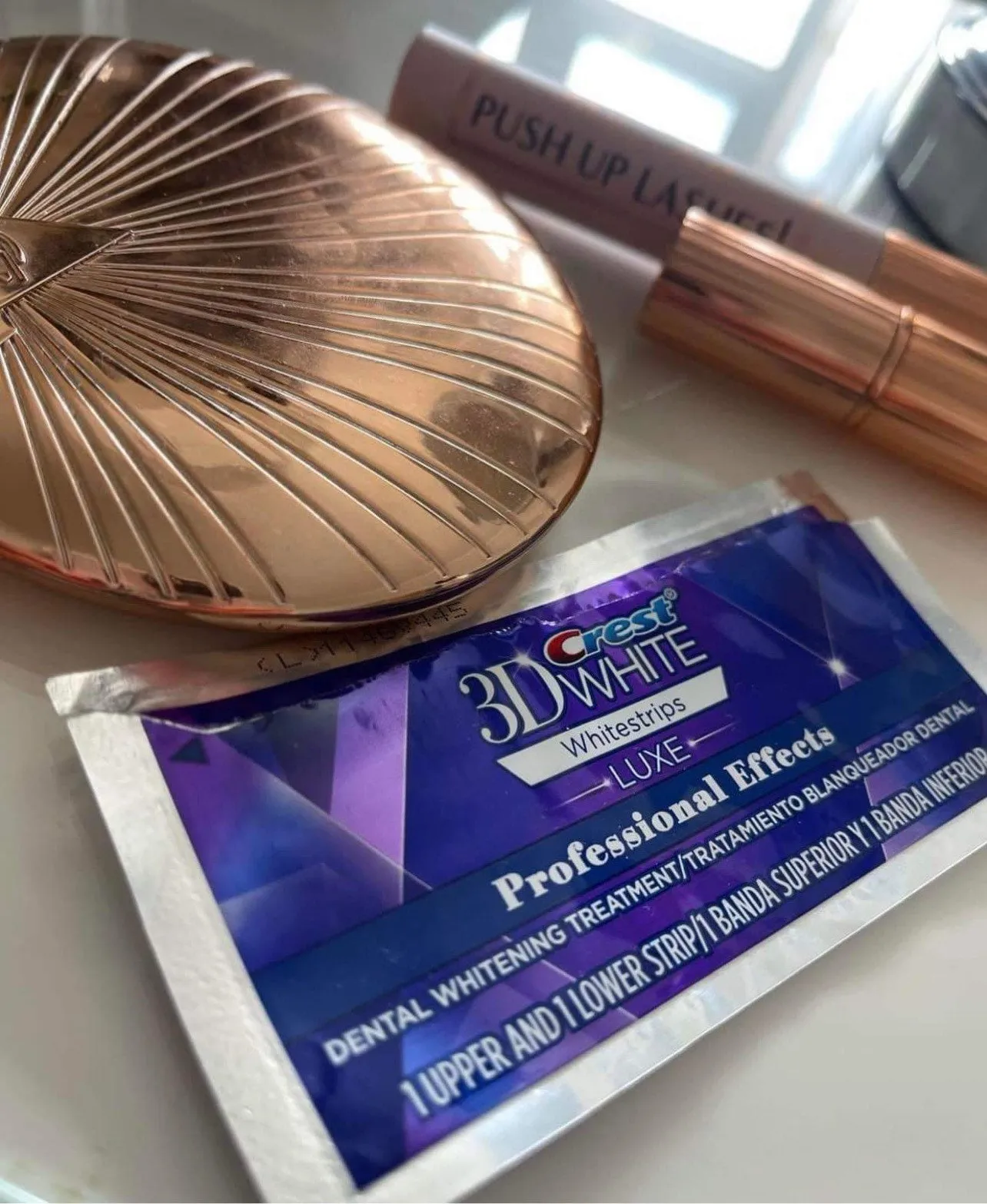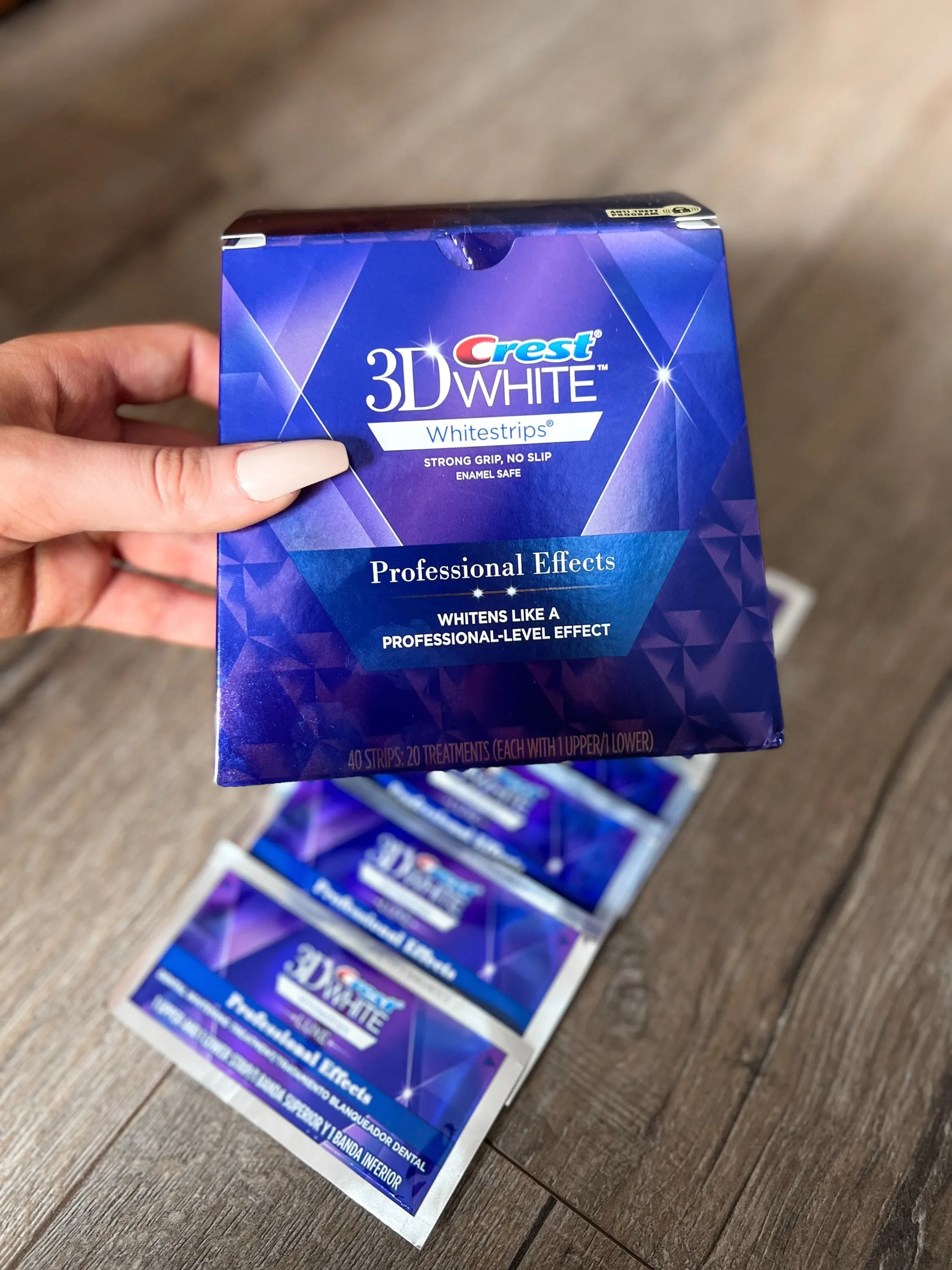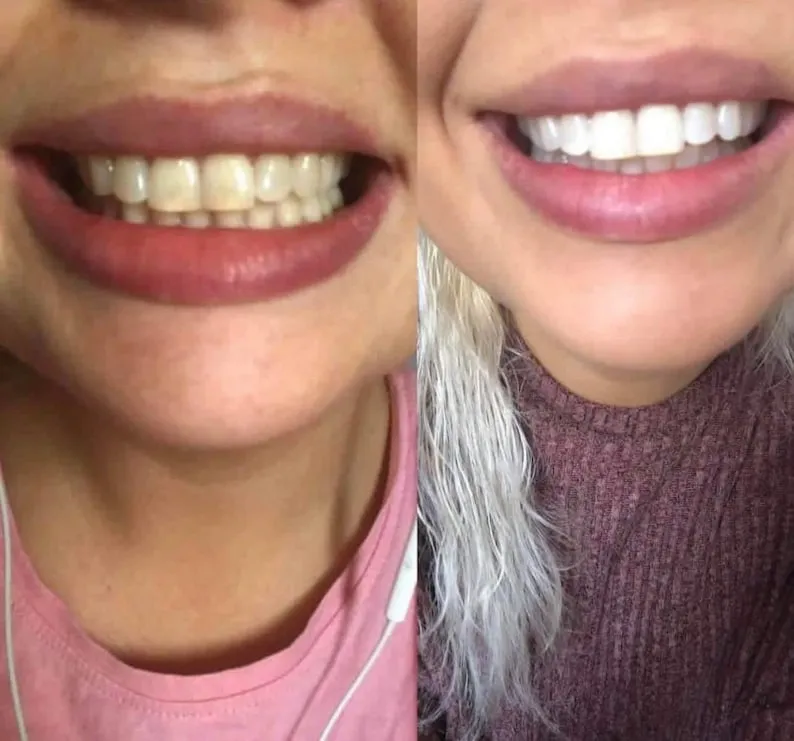Are Crest Whitening Strips Safe During Pregnancy?
The use of Crest Whitening Strips during pregnancy is a topic that requires careful consideration. While many women seek to maintain their beauty routines, including teeth whitening, during pregnancy, it’s crucial to prioritize the health and safety of both the mother and the developing baby. The primary concern revolves around the ingredients in these strips and their potential impact. This article aims to provide comprehensive information to help you make an informed decision about using Crest Whitening Strips while pregnant. It is essential to consult with your dentist and obstetrician before making any decisions related to your health during pregnancy. They can provide personalized advice based on your individual health status and medical history. Remember, the well-being of your baby is paramount, and making informed choices is crucial for a healthy pregnancy.
Understanding the Ingredients in Crest Whitening Strips
Crest Whitening Strips typically contain a few key ingredients that contribute to their teeth-whitening effect. Understanding these ingredients is the first step in assessing their safety during pregnancy. The active ingredient is usually hydrogen peroxide, which acts as a bleaching agent to remove stains and lighten the teeth. Other ingredients, like glycerin, sodium hydroxide, and carbomer, help to create the strip’s structure and ensure the product adheres to the teeth. The concentration of hydrogen peroxide varies depending on the specific product, with higher concentrations often leading to faster whitening results. However, the higher the concentration, the greater the potential for side effects. It’s important to review the product label carefully to understand the exact ingredients and their concentrations before using Crest Whitening Strips or any similar product. Always consult with your healthcare provider regarding any concerns about product safety during pregnancy. This knowledge will guide you in making an informed decision.
Hydrogen Peroxide in Crest Whitening Strips

Hydrogen peroxide is the active agent in Crest Whitening Strips responsible for bleaching teeth. It works by penetrating the enamel and breaking down stain molecules. However, the use of hydrogen peroxide during pregnancy raises questions about its safety. While the amount of hydrogen peroxide absorbed into the bloodstream from whitening strips is generally considered to be minimal, some experts recommend caution. The potential for systemic absorption and its effects on fetal development remain a concern. The American Dental Association (ADA) has not issued a definitive statement on the safety of hydrogen peroxide in teeth whitening products during pregnancy. Because of this lack of definitive information, many healthcare providers advise against the use of these products. It is essential to weigh the potential benefits of teeth whitening against the possible risks to the developing fetus, considering the overall health of the mother and the baby.
Potential Risks of Using Whitening Strips
While the potential risks associated with using Crest Whitening Strips during pregnancy are often considered low, it is still important to be aware of them. The main concerns revolve around the potential for adverse effects on the mother and the possible impact on fetal development. Although studies have not definitively proven that the use of whitening strips is harmful during pregnancy, the lack of comprehensive research means that potential risks cannot be entirely ruled out. It’s crucial to balance the desire for cosmetic enhancements with the need to ensure the well-being of the baby. Pregnant women should always consult with their healthcare providers to assess the risk-benefit ratio and make informed decisions. Choosing to err on the side of caution is a common practice during pregnancy, and it applies to teeth whitening as well. Choosing the right choices will reduce any potential risk.
Sensitivity and Irritation
One of the most common side effects of using Crest Whitening Strips is tooth sensitivity and gum irritation. This can be particularly uncomfortable during pregnancy when hormonal changes can increase gum sensitivity. The hydrogen peroxide can cause inflammation and discomfort in the gums and teeth, leading to a painful experience. If you experience any sensitivity or irritation while using Crest Whitening Strips, it is essential to stop using them immediately. You can then consult your dentist for advice. They might suggest alternative methods or recommend a waiting period until after delivery. It is essential to maintain good oral hygiene practices during pregnancy. This includes brushing twice a day and flossing daily, as well as regular dental checkups. Doing this can minimize any discomfort caused by sensitivity or irritation.
Impact on Fetal Development

The potential impact of Crest Whitening Strips on fetal development is a significant concern. The limited research available makes it difficult to fully assess the risks. The primary concern revolves around whether the hydrogen peroxide can be absorbed into the bloodstream and potentially reach the fetus. While the amount of hydrogen peroxide absorbed through the use of whitening strips is generally considered minimal, the potential effects are unknown. Many healthcare providers advise against using these products during pregnancy, to minimize any risk. It is important to prioritize the health of your baby and consult with your doctor to determine the safest course of action. They can provide guidance based on your specific circumstances and help you make the right choices.
Alternatives to Crest Whitening Strips During Pregnancy
If you are pregnant and concerned about using Crest Whitening Strips, several alternative methods can help maintain or improve the appearance of your teeth. These options offer safer alternatives, and they also address various concerns. It’s essential to discuss these options with your dentist to determine the best approach for your specific needs. Your dentist can also provide professional guidance and recommend the safest teeth whitening or maintenance practices during pregnancy. Always seek advice from a healthcare provider to ensure the well-being of both you and your baby. Maintaining a healthy and bright smile is possible during pregnancy with the right approach.
Dental Cleaning and Professional Whitening
Professional dental cleaning is a safe and effective way to maintain oral health during pregnancy. Regular cleaning removes plaque and tartar build-up, which can contribute to teeth discoloration. Professional teeth whitening treatments, performed by a dentist, can be an option. These treatments often use stronger whitening agents than those available in over-the-counter products. Always consult with your dentist about the safety of professional whitening. It is important to have a professional cleaning before deciding to whiten your teeth. Your dentist will evaluate your oral health. They can then recommend the safest and most effective whitening procedure. Professional care ensures the health of both your teeth and gums and is an excellent choice.
Home Remedies for Teeth Whitening

Several home remedies can help maintain the brightness of your teeth during pregnancy. These methods are generally considered safer than using Crest Whitening Strips, but you should still consult your dentist before trying them. Some options include brushing with baking soda, which acts as a gentle abrasive to remove surface stains. Another option is using activated charcoal, but it is important to use this in moderation, as it can be harsh on tooth enamel. Maintaining good oral hygiene habits, such as brushing twice daily and flossing, is crucial for preventing stains. It is also important to rinse your mouth with water after eating or drinking staining foods. You can also limit your consumption of coffee, tea, and red wine, as these can cause stains. Remember, always discuss any home remedies with your dentist to ensure they are safe and suitable for your specific needs.
How to Use Crest Whitening Strips Safely During Pregnancy
If, after consulting with your dentist and obstetrician, you decide to use Crest Whitening Strips during pregnancy, it is crucial to take precautions to minimize potential risks. Although many health care providers advise against using these products, this information should be considered. Start by consulting your dentist and your obstetrician. They can evaluate your individual circumstances and provide personalized guidance. Always use the product as directed and never exceed the recommended usage. If you experience any sensitivity or irritation, stop using the strips immediately. Be diligent in monitoring for any side effects, and report any concerns to your healthcare provider. Remember that these steps are crucial in mitigating potential risks. Always put your baby’s health first.
Consulting Your Dentist
Consulting your dentist is the first and most crucial step before using Crest Whitening Strips during pregnancy. Your dentist can evaluate the health of your teeth and gums and provide personalized advice based on your oral health history. They can also discuss the potential risks and benefits, providing a clear understanding of what to expect. Your dentist might also suggest alternative whitening methods that are safer for pregnant women. They can also monitor your oral health throughout your pregnancy. This regular dental check-up ensures that any issues are addressed promptly. Make sure you ask your dentist about any questions or concerns you might have before starting any teeth whitening treatment. Working together will help ensure the safety of you and your baby.
Proper Application Techniques

Using Crest Whitening Strips correctly is essential for maximizing their effectiveness while minimizing potential risks. Before applying the strips, brush your teeth gently, ensuring that they are clean and free of plaque. Apply the strips as directed by the product instructions, making sure they adhere properly to your teeth. Avoid getting the whitening gel on your gums, as this can cause irritation. Follow the recommended duration of use, typically 30 minutes. Do not leave the strips on your teeth for a longer period. After removing the strips, rinse your mouth thoroughly with water. Avoid eating or drinking for at least 30 minutes after treatment. Proper application ensures you get the best results. Also, it reduces the likelihood of experiencing side effects such as tooth sensitivity and gum irritation.
Frequency and Duration of Use
The frequency and duration of using Crest Whitening Strips should be carefully managed during pregnancy. Always follow the product instructions for the recommended usage. Avoid using the strips more frequently than recommended. Overuse can increase the risk of tooth sensitivity and gum irritation. If you decide to use the strips, start with a shorter duration, and monitor your teeth. If you experience any sensitivity or irritation, stop using them immediately. The ideal approach is to consult with your dentist. They can recommend the safest frequency and duration for your specific needs. Regular dental check-ups will help you to ensure safe and effective teeth whitening.
Monitoring for Side Effects
Closely monitoring for side effects is crucial when using Crest Whitening Strips during pregnancy. Be aware of any changes to your teeth and gums, and report them to your dentist or healthcare provider. Common side effects include tooth sensitivity and gum irritation, but you should report anything unusual. If you experience sensitivity, reduce the frequency of use, or stop using the strips. If gum irritation occurs, rinse your mouth with water, and avoid brushing the affected area. It is important to document any side effects and discuss them with your dentist or healthcare provider. Monitoring for side effects will ensure a safer experience. This will also help you make informed decisions about your oral health care during pregnancy.
When to Avoid Crest Whitening Strips

There are specific circumstances where Crest Whitening Strips should be avoided during pregnancy. Prioritizing your and your baby’s health is paramount. Always consult with your dentist and obstetrician. They can provide the most accurate advice based on your medical history. Certain health conditions and situations warrant extra caution. It is essential to assess these situations and make informed decisions. These decisions will safeguard your health and that of your developing baby. This knowledge is essential to avoid any potential harm.
Severe Morning Sickness
Severe morning sickness can affect the safety of using Crest Whitening Strips. Persistent vomiting can erode tooth enamel, making your teeth more sensitive and vulnerable. Using whitening strips on already weakened enamel can exacerbate sensitivity and irritation. The exposure to the whitening agents may also cause additional discomfort. If you are experiencing severe morning sickness, it is best to avoid Crest Whitening Strips until your symptoms subside. Focus on managing your morning sickness, and maintain good oral hygiene, such as gentle brushing and rinsing with fluoride mouthwash. Always seek advice from your dentist and obstetrician. They can provide guidance on the safest approach to oral care while managing morning sickness. They can advise you on any specific health problems you might have.
Known Allergies
If you have known allergies, it is essential to avoid Crest Whitening Strips. Check the product label carefully, and identify any ingredients you might be allergic to. Even a minor allergic reaction can cause discomfort during pregnancy. In severe cases, allergic reactions can pose risks to both the mother and the developing baby. If you have any doubts, it is best to avoid the product and consult with your dentist or healthcare provider. They can recommend alternative teeth whitening methods that are safe and suitable for you. Prioritizing your health is crucial to a healthy pregnancy.
Expert Recommendations for Oral Care During Pregnancy

Maintaining excellent oral hygiene is crucial throughout pregnancy. Hormone changes can increase your susceptibility to gum disease and other oral health issues. Brushing your teeth twice a day and flossing daily are fundamental practices. Using a soft-bristled toothbrush can help prevent irritation. Fluoride toothpaste is essential for strengthening your tooth enamel and preventing cavities. Regular dental check-ups and cleanings are vital to monitor your oral health and address any issues. You can also ask your dentist for guidance on safe teeth whitening options. Be sure to inform your dentist that you are pregnant. They can adjust your treatment. Following expert recommendations will ensure you have a healthy smile during your pregnancy.
In conclusion, while the use of Crest Whitening Strips during pregnancy is a topic of concern, making an informed decision is essential. Consulting with your dentist and obstetrician is critical. Prioritizing the health and safety of both the mother and the developing baby is paramount. Consider the ingredients, potential risks, and alternative options. By following expert recommendations and practicing excellent oral hygiene, you can maintain a healthy and beautiful smile throughout your pregnancy. Remember, it is always best to err on the side of caution when it comes to your baby’s well-being.
